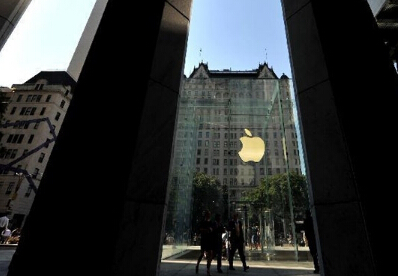A few weeks ago, the governor of Nevada, Brian Sandoval, signed into law a tax вҖңincentive packageвҖқ that his administration had negotiated with Tesla, the electric car company. Tesla is planning to build a giant factory to manufacture the batteries that power its cars, and Nevada was one of five states that were competing fiercely to land the plant.
еҮ дёӘжҳҹжңҹеүҚпјҢеҶ…еҚҺиҫҫе·һж”ҝеәңдёҺз”өеҠЁжұҪиҪҰе…¬еҸёзү№ж–ҜжӢү(Tesla)и°ҲжҲҗзҡ„вҖңдёҖжҸҪеӯҗзЁҺ收жҝҖеҠұж–№жЎҲвҖқпјҢз»Ҹе·һй•ҝеёғиө–жҒ©В·жЎ‘еӨҡз“Ұе°”(Brian Sandoval)зӯҫзҪІз”ҹж•ҲгҖӮзү№ж–ҜжӢүжӯЈеҮҶеӨҮе»әйҖ дёҖ家дёәе…¶з”өеҠЁиҪҰдә§е“Ғз”ҹдә§з”өжұ зҡ„е·ЁеһӢе·ҘеҺӮгҖӮеҢ…жӢ¬еҶ…еҚҺиҫҫеңЁеҶ…пјҢе…ұжңүдә”дёӘе·һдёәдәҶи®©е·ҘеҺӮеңЁжң¬ең°иҗҪжҲ·иҖҢеұ•ејҖдәҶжҝҖзғҲзҡ„з«һдәүгҖӮ

It ultimately offered a staggering $1.25 billion package of tax breaks that includes sales tax abatements for the next two decades, 10 years of property tax abatements and nearly $200 million in transferable tax credits that Tesla could sell to Nevada companies that wanted to lower their own tax bills. Although Elon Musk, TeslaвҖҷs chief executive, insisted that at least one of the other states had offered an even richer tax package, it is clear that the tax breaks Nevada came up with played an important role in landing the Tesla factory.
жңҖз»ҲпјҢеҶ…иҫҫеҚҺе·һжҸҗдҫӣдәҶдёҖйЎ№жҖ»йўқй«ҳиҫҫ12.5дәҝзҫҺе…ғпјҲзәҰеҗҲ76.7дәҝе…ғдәәж°‘еёҒпјүзҡ„зЁҺ收дјҳжғ и®ЎеҲ’пјҢе…¶дёӯеҢ…жӢ¬жңӘжқҘ20е№ҙзҡ„й”Җе”®зЁҺеҮҸе…ҚгҖҒ10е№ҙзҡ„дёҚеҠЁдә§зЁҺеҮҸе…ҚпјҢд»ҘеҸҠе°Ҷиҝ‘2дәҝзҫҺе…ғзҡ„еҸҜиҪ¬и®©зЁҺ收жҠөе…ҚйўқвҖ”вҖ”зү№жӢүж–ҜеҸҜд»Ҙе°Ҷе…¶еҖ’еҚ–з»ҷжғіиҰҒе°‘зјҙзЁҺж¬ҫзҡ„е·һеҶ…е…¬еҸёгҖӮжҳҫ然пјҢеҶ…иҫҫеҚҺе·һжүҖжҸҗдҫӣзҡ„зЁҺ收дјҳжғ пјҢжҳҜе®ғжӢҝдёӢзү№ж–ҜжӢүз”өжұ з”ҹдә§еҺӮзҡ„йҮҚиҰҒеҠ©еҠӣпјҢе°Ҫз®Ўе…¬еҸёзҡ„йҰ–еёӯжү§иЎҢе®ҳеҹғйҡҶ·马ж–Ҝе…Ӣ(Elon Musk)еқҡз§°пјҢе…¶д»–еҸӮдёҺз«һдәүзҡ„е·һдёӯпјҢиҮіе°‘жңүдёҖдёӘжүҝиҜәиҝҮжӣҙдёәж…·ж…Ёзҡ„зЁҺ收дјҳжғ ж”ҝзӯ–гҖӮ
In reading this week about AppleвҖҷs tax dealings in Ireland, I found myself reflecting on the tax deals that American states cut all the time with companies they are trying to lure. ItвҖҷs not all that different. In a sense, what Ireland has been doing is the global equivalent of what the states do to attract business. And that is especially true in the case of Apple.
жң¬е‘ЁпјҢзңӢзқҖдёҺиӢ№жһңе…¬еҸё(Apple)еңЁзҲұе°”е…°зҡ„зЁҺеҠЎе®үжҺ’жңүе…ізҡ„жҠҘйҒ“пјҢжҲ‘дёҚз”ұеҫ—жғіиө·дәҶзҫҺеӣҪеҗ„е·һе’Ңе®ғ们жһҒеҠӣ延жҸҪзҡ„дјҒдёҡд№Ӣй—ҙйў‘йў‘иҫҫжҲҗзҡ„зЁҺ收еҚҸи®®гҖӮдёӨиҖ…并没жңүеӨҡеӨ§е·®еҲ«гҖӮеңЁжҹҗз§Қж„Ҹд№үдёҠпјҢзҲұе°”е…°е’ҢзҫҺеӣҪеҗ„е·һдёәдәҶжӢӣе•ҶиҖҢеҒҡзқҖеҗҢж ·зҡ„дәӢжғ…пјҢеҸӘдёҚиҝҮзҲұе°”е…°дёҠеҚҮеҲ°дәҶеӣҪйҷ…еұӮйқўгҖӮеңЁиӢ№жһңзҡ„дәӢжғ…дёҠпјҢе°Өе…¶еҰӮжӯӨгҖӮ
Ireland has long had one of the lowest corporate tax rates in Europe; itвҖҷs currently 12.5 percent. That low rate, the Irish believe, helped attract industry and create the countryвҖҷs boom in the years leading up to the financial crisis.
й•ҝжңҹд»ҘжқҘпјҢзҲұе°”е…°зҡ„дјҒдёҡзЁҺзЁҺзҺҮеңЁж¬§жҙІеӣҪ家дёӯдҪҚеұ…дёӢжёёвҖ”вҖ”зӣ®еүҚдёә12.5%гҖӮзҲұе°”е…°и®ӨдёәпјҢеңЁйҮ‘иһҚеҚұжңәзҲҶеҸ‘еүҚзҡ„йӮЈдәӣе№ҙпјҢиҝҷз§ҚдҪҺзЁҺзҺҮеңЁеҗёеј•еӨ–иө„дјҒдёҡгҖҒжҺЁеҠЁжң¬еӣҪз»ҸжөҺз№ҒиҚЈж–№йқўеҠҹдёҚеҸҜжІЎгҖӮ
But it did a lot more than simply offer a low corporate tax rate. It set itself up as a kind of European tax haven, so that companies like Google, Facebook, Microsoft and others could, in effect, buy an Irish address to which they could transfer a great deal of their intellectual property and route profits accrued elsewhere through the Irish subsidiary. This is called transfer pricing. Companies could also take advantage of other loopholes in the Irish tax code to get their tax bill considerably lower than 12.5 percent.
然иҖҢпјҢзҲұе°”е…°з»қйқһеҸӘжҳҜжҸҗдҫӣдҪҺзЁҺзҺҮиҖҢе·ІгҖӮе®ғжҠҠиҮӘе·ұжү“йҖ жҲҗдәҶ欧жҙІзҡ„йҒҝзЁҺеӨ©е ӮпјҢе…Ғи®ёи°·жӯҢ(Google)гҖҒFacebookе’Ңеҫ®иҪҜ(Microsoft)зӯүе…¬еҸёе®һйҷ…дёҠд»…йңҖд№°дёӢдёҖдёӘзҲұе°”е…°зҡ„ең°еқҖпјҢе°ұиғҪйҖҡиҝҮиҜҘеӣҪзҡ„еӯҗе…¬еҸёжҠҠеә”и®Ўе…Ҙе…¶д»–ең°ж–№зҡ„еӨ§йҮҸзҹҘиҜҶдә§жқғе’Ң常规收зӣҠиҪ¬з§»иҝҮжқҘгҖӮиҝҷдёҖжӢӣиў«з§°дёәвҖңиҪ¬з§»е®ҡд»·вҖқгҖӮдјҒдёҡиҝҳеҸҜд»Ҙй’»зҲұе°”е…°зЁҺжі•зҡ„е…¶д»–дёҖдәӣз©әеӯҗпјҢи®©иҮӘе·ұжүҖжүҝжӢ…зҡ„е®һйҷ…зЁҺиҙҹиҝңдҪҺдәҺ12.5%гҖӮ
As The New York Times reported in a groundbreaking article two years ago вҖ” and the Senate Permanent Subcommittee on Investigations confirmed last year вҖ” Apple takes advantage of every tax break Ireland offers. But according to the European UnionвҖҷs competition commissioner, JoaquГӯn Almunia, in a letter released this week, the company went a step further in its dealings with the Irish tax authorities.
е°ұеғҸгҖҠзәҪзәҰж—¶жҠҘгҖӢеңЁдёӨе№ҙеүҚеҸ‘иЎЁзҡ„дёҖзҜҮзӘҒз ҙжҖ§ж–Үз« дёӯжҠҘйҒ“зҡ„йӮЈж ·пјҢиӢ№жһңе…¬еҸёе……еҲҶеҲ©з”ЁдәҶзҲұе°”е…°жҸҗдҫӣзҡ„жҜҸдёҖйЎ№зЁҺ收дјҳжғ гҖӮеҸӮи®®йҷўеёёи®ҫи°ғжҹҘе°Ҹ组委е‘ҳдјҡ(Senate Permanent Subcommittee on Investigations)еҺ»е№ҙд№ҹеҜ№жӯӨдәҲд»ҘдәҶзЎ®и®ӨгҖӮдёҚиҝҮпјҢ欧зӣҹиҙҹиҙЈз«һдәүдәӢеҠЎзҡ„委е‘ҳеҚҺйҮ‘В·йҳҝе°”з©Ҷе°јдәҡ(JoaquГӯn Almunia)еңЁжң¬е‘Ёе…¬еёғзҡ„дҝЎд»¶дёӯжҢҮеҮәпјҢеңЁдёҺзҲұе°”е…°зЁҺеҠЎйғЁй—ЁиҝӣиЎҢзәізЁҺе®үжҺ’ж—¶пјҢиӢ№жһңе…¬еҸёеҒҡеҫ—жӣҙиҝӣдёҖжӯҘгҖӮ
In 1991, Apple essentially negotiated how much tax the company would pay. It did so after it had explicitly вҖңmentioned by way of background information that Apple was now the largest employer in the Cork area with 1,000 direct employees and 500 persons engaged on a sub-contract basis,вҖқ again according to AlmuniaвҖҷs letter. Apple also acknowledged that it had вҖңno scientific basisвҖқ for the amount of tax it was willing to pay. The deal was then вҖңreverse engineeredвҖқ so that AppleвҖҷs profits would wind up in the range that would yield the suggested taxes. (Apple now has 4,000 people working in its Cork manufacturing plant, the only Apple-owned factory in Europe; its tax deal with Ireland was reworked in 2007.)
1991е№ҙпјҢиӢ№жһңе®һиҙЁдёҠйҖҡиҝҮи°ҲеҲӨзЎ®е®ҡдәҶе…¬еҸёеә”иҜҘзјҙзәізҡ„зЁҺйўқгҖӮйҳҝе°”з©Ҷе°јдәҡеңЁдҝЎдёӯиЎЁзӨәпјҢе…¬еҸёеңЁвҖңиғҢжҷҜдҝЎжҒҜдёӯжҳҺзЎ®жҸҗеҲ°пјҢиӢ№жһңзӣ®еүҚжҳҜ科е…Ӣең°еҢәжңҖеӨ§зҡ„йӣҮдё»пјҢжӢҘжңү1000еҗҚзӣҙеұһйӣҮе‘ҳпјҢд»ҘеҸҠ500еҗҚзӯҫзҪІеҲҶеҢ…еҗҲеҗҢзҡ„дәәе‘ҳвҖқгҖӮжӯӨеҗҺпјҢеҸҢж–№иҝӣиЎҢдәҶи°ҲеҲӨгҖӮиӢ№жһңе…¬еҸёд№ҹжүҝи®ӨпјҢеҜ№дәҺж„ҝж„Ҹзјҙзәізҡ„зЁҺйўқпјҢ他们并вҖңжІЎжңү科еӯҰдҫқжҚ®вҖқгҖӮиҝҷйЎ№еҚҸи®®еҗҺжқҘиў«вҖңеҸҚжҺЁвҖқпјҢеҰӮжӯӨдёҖжқҘпјҢиӢ№жһңжңҖз»Ҳзҡ„еҲ©ж¶ҰдјҡеҲҡеҘҪиҗҪеңЁйңҖиҰҒзјҙзәізӣёеә”зЁҺзҺҮзҡ„еҢәй—ҙгҖӮпјҲиӢ№жһңдҪҚдәҺ科е…Ӣзҡ„еҲ¶йҖ е·ҘеҺӮзӣ®еүҚжӢҘжңү4000еҗҚе‘ҳе·ҘпјҢжҳҜе®ғеңЁж¬§жҙІе”ҜдёҖзҡ„еҪ’иҮӘиә«жүҖжңүзҡ„е·ҘеҺӮпјӣиӢ№жһңдёҺзҲұе°”е…°еңЁ2007е№ҙйҮҚж–°дҝ®и®ўдәҶзЁҺеҠЎеҚҸи®®гҖӮпјү
With the recent outcry over corporate tax loopholes, the E.U. decided to take a closer look at some of its membersвҖҷ tax dealings that had been flagged in the media. In addition to Apple and Ireland, it is looking at Fiat in Luxembourg and Starbucks in the Netherlands. And while the Apple case is far from over вҖ” indeed, both Apple and Ireland insist they did nothing wrong вҖ” Almunia, at least, has concluded that AppleвҖҷs tax deal with Ireland amounts to вҖңstate aid.вҖқ Under European Commission rules, countries are not allowed to subsidize companies in ways that give them advantages over others in the country.
з”ұдәҺдјҒдёҡзҡ„зЁҺ收жјҸжҙһжңҖиҝ‘еј•иө·дәҶиҪ©з„¶еӨ§жіўпјҢ欧зӣҹеҶіе®ҡеҜ№еӘ’дҪ“жҸӯйңІзҡ„жҹҗдәӣ欧зӣҹжҲҗе‘ҳеӣҪзҡ„зЁҺ收е®үжҺ’иҝӣиЎҢд»”з»Ҷе®ЎжҹҘгҖӮйҷӨдәҶиӢ№жһңдёҺзҲұе°”е…°зҡ„еҒҡжі•пјҢ欧зӣҹиҝҳеңЁи°ғжҹҘиҸІдәҡзү№(Fiat)еңЁеҚўжЈ®е ЎпјҢд»ҘеҸҠжҳҹе·ҙе…Ӣ(Starbucks)еңЁиҚ·е…°зҡ„зЁҺеҠЎе®үжҺ’гҖӮиҷҪ然иӢ№жһңзҡ„жЎҲ件иҝҳиҝңиҝңжІЎжңүз»“жқҹвҖ”вҖ”е®һйҷ…дёҠиӢ№жһңе’ҢзҲұе°”е…°еқҡз§°е®ғ们дёҚеӯҳеңЁиҝқжі•иЎҢдёәвҖ”вҖ”дҪҶиҮіе°‘йҳҝе°”з©Ҷе°јдәҡе·Із»Ҹж–ӯе®ҡпјҢиӢ№жһңдёҺзҲұе°”е…°зҡ„зЁҺеҠЎеҚҸи®®зӣёеҪ“дәҺвҖңеӣҪ家иЎҘиҙҙвҖқгҖӮ欧зӣҹ委е‘ҳдјҡзҡ„规е®ҡзҰҒжӯўеҗ„дёӘеӣҪ家д»ҘжҸҗдҫӣдјҳжғ жқЎд»¶зҡ„ж–№ејҸеҜ№дјҒдёҡиҝӣиЎҢиЎҘиҙҙпјҢиҝҷж ·дјҡдҪҝдёҖдәӣе…¬еҸёжҜ”еҸҰдёҖдәӣе…¬еҸёжӣҙжңүдјҳеҠҝгҖӮ
Here then is one difference between what transpires in the U.S. and what transpires in Europe: The E.U. has rules intended to prevent nations from giving unjustified tax breaks to companies. вҖңIn Europe there is now a mechanism to prevent the most harmful abusesвҖқ of the tax code, said Matthew Gardner, the executive director of the Institute on Taxation and Economic Policy. It has taken a while вҖ” and required an outraged public to spur it on вҖ” but the E.U. finally seems intent on curbing excesses like AppleвҖҷs tax deal in Ireland.
зҫҺеӣҪзҡ„жғ…еҶөдёҺ欧жҙІзҡ„жғ…еҶөеӯҳеңЁдёҖдёӘе·®ејӮпјҡ欧зӣҹеҲ¶е®ҡдәҶзӣёе…іи§„е®ҡпјҢд»ҘйҳІжӯўеӣҪ家з»ҷдәҲе…¬еҸёдёҚеҗҲзҗҶзҡ„зЁҺ收дјҳжғ гҖӮзЁҺ收дёҺз»ҸжөҺж”ҝзӯ–з ”з©¶жүҖ(Institute on Taxation and Economic Policy)жү§иЎҢзҗҶдәӢ马дҝ®В·еҠ еҫ·зәі(Matthew Gardner)иҜҙпјҢвҖң欧жҙІзҺ°еңЁеӯҳеңЁдёҖз§ҚжңәеҲ¶пјҢжқҘйҳІжӯўеҚұе®іжҖ§жңҖејәзҡ„规йҒҝзЁҺжі•зҡ„иЎҢдёәгҖӮвҖқиө°еҲ°иҝҷдёҖжӯҘиҠұдәҶдёҖдәӣж—¶й—ҙпјҢд№ҹйңҖиҰҒж„ӨжҖ’зҡ„е…¬дј—иҝӣдёҖжӯҘжҺЁеҠЁпјҢдҪҶ欧зӣҹжңҖз»Ҳдјјд№ҺдёӢе®ҡдәҶеҶіеҝғпјҢиҰҒйҒҸеҲ¶дёҖдәӣиҝҮеҲҶзҡ„иЎҢдёәпјҢжҜ”еҰӮиӢ№жһңдёҺзҲұе°”е…°иҫҫжҲҗзҡ„зЁҺеҠЎеҚҸи®®гҖӮ
In truth, most tax subsidies donвҖҷt make much sense вҖ” not for countries and certainly not for states. вҖңThere is a lot of work that shows that tax subsidies vastly overpay for the jobs they create,вҖқ said Edward Kleinbard, a law professor at the University of Southern California and the author of the recent book вҖңWe Are Better Than This: How Government Should Spend Our Money.вҖқ
е®һйҷ…дёҠпјҢеӨ§еӨҡж•°зЁҺ收иЎҘиҙҙеҜ№дәҺеӣҪ家пјҢзү№еҲ«жҳҜеҜ№дәҺеҗ„е·һжқҘиҜҙпјҢ并没жңүеӨҡеӨ§ж„Ҹд№үгҖӮеҚ—еҠ е·һеӨ§еӯҰ(University of Southern California)жі•еӯҰж•ҷжҺҲзҲұеҫ·еҚҺВ·е…ӢиҺұжҒ©е·ҙеҫ·(Edward Kleinbard)иҜҙпјҢвҖңжңүеҫҲеӨҡз ”з©¶жҳҫзӨәпјҢзЁҺ收иЎҘиҙҙзҡ„йҮ‘йўқпјҢиҝңиҝңи¶…иҝҮдәҶе…¬еҸёжүҖеҲӣйҖ е°ұдёҡеІ—дҪҚзҡ„д»·еҖјгҖӮвҖқе…ӢиҺұжҒ©е·ҙеҫ·жңҖиҝ‘еҮәзүҲдәҶгҖҠжҲ‘们еҸҜд»ҘеҒҡеҫ—жӣҙеҘҪпјҡзәізЁҺдәәзҡ„й’ұж”ҝеәңеә”иҜҘжҖҺд№ҲиҠұгҖӢ(We Are Better Than This: How Government Should Spend Our Money)гҖӮ
ItвҖҷs a good thing that the E.U. is trying to curb unjustified tax breaks. Maybe itвҖҷs time to do the same here.
欧зӣҹжӯЈеңЁи®ҫжі•йҒҸеҲ¶дёҚеҗҲзҗҶзҡ„зЁҺ收дјҳжғ пјҢиҝҷжҳҜеҘҪдәӢгҖӮжҲ–и®ёзҫҺеӣҪзҺ°еңЁд№ҹеә”иҜҘиҝҷд№ҲеҒҡгҖӮ













